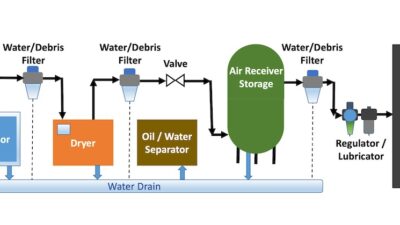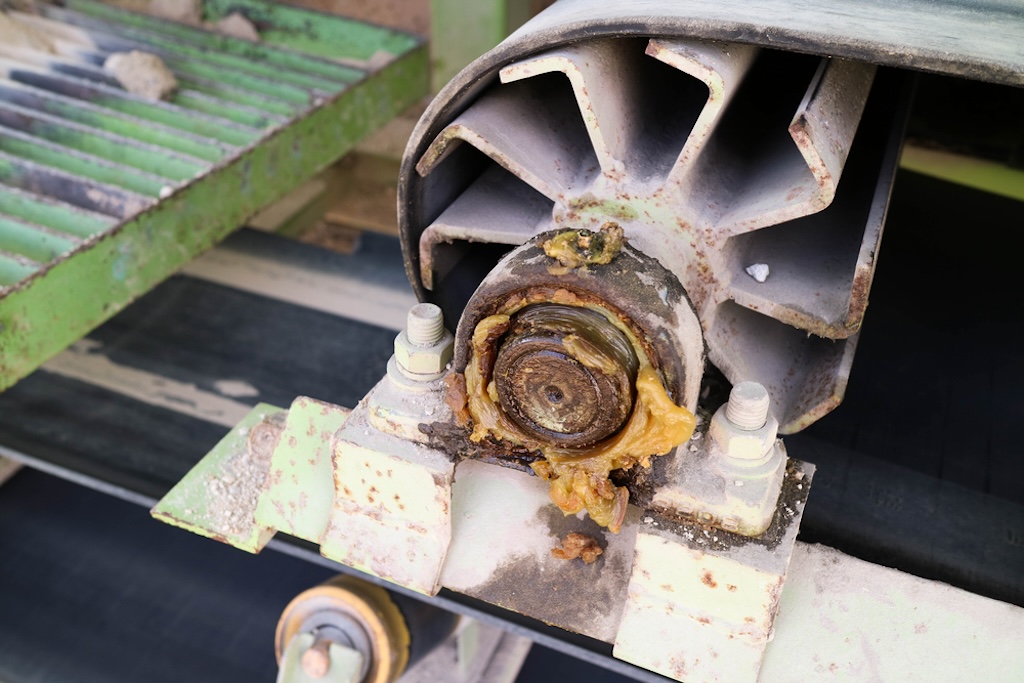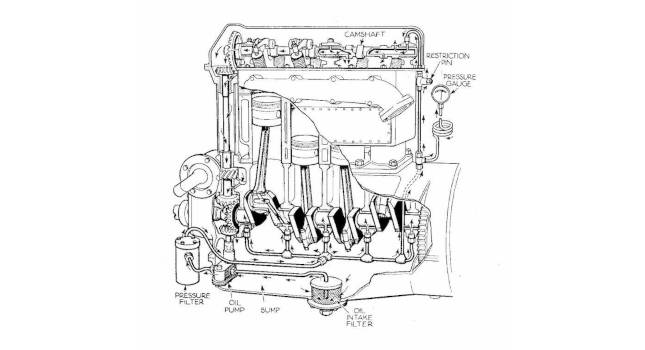Manufacturing is dealing with major supply chain issues that have worsened during the two-year COVID-19 pandemic. Lubrication engineers and experts can help, but the struggle ahead is going to be a long one.

Manufacturing was going through major changes before the pandemic happened. A lot of what had been taken for granted was starting to change in new ways thanks to technology and methodology changes. While the pandemic did not cause many of the supply chain issues, it has made the situation worse and forced manufacturers to confront these challenges due to the effects they’re having on society.
Neil Canter, president of Chemical Solutions and technical advisor to the Society of Tribologists and Lubrication Engineers (STLE), a CFE Media content partner, said in a video interview the supply chain issues are going to be with us for a while.
“The supply chain issues are having a huge impact with the lubrication industry,” he said. “Many lubricant companies, big and small, are having trouble obtaining raw materials. You really have to start with raw material suppliers who are sourcing products all over the world.” He added they send their materials down the supply chain to customers who need them to prepare raw material derivatives and finished lubricants. This process has been refined over many years but difficulties became apparent even prior to the pandemic. Now it’s even harder due to the world we currently live in.
Of COVID’s effect on the supply chain, Canter said, “The pandemic has certainly made it worse. We are changing as a society whether it be in the U.S. or overseas. People are spending more time at home. People are changing and companies are adjusting to that. From a manufacturing perspective, that makes things harder because you cannot manufacture things in your home.”
For lubrication engineers, they are facing an acute challenge with the automotive and transportation industry, who are their biggest customers because of these supply chain issues. But to the lubricant industry’s credit, manufacturers are sourcing multiple raw materials that perform specific functions in lubricants in order to ensure that their customers will not have to shut down their manufacturing plants.
“But the customers in the lubricant industry, the end users and the people in the automotive industry, do not always have all their raw materials at their fingertips. The JIT(Just-in-Time) philosophy is not working effectively at this point and steps need to be taken to find alternative approaches.”
With end users and some automotive customers struggling to survive, necessary monitoring and maintenance of lubricants is not being done, which may lead to unforeseen production problems, Canter said. Supply shortages of essential raw materials (such as semiconductors) means that automotive plants have reduced operations, leading to a loss of revenue.
In order to reduce costs, some end users are not reaching out to lubrication engineers to help keep their machines running properly. The problem is this can lead to more breakdowns. It’s a vicious circle and will only become more pronounced as time goes on.
This challenge is not something that can be resolved overnight, Canter said, and in the U.S., it will be dependent on private industries making changes rather than the government. Due to the supply chain’s intricacies and the many challenges and issues, it will take years.
“I think manufacturing will be dealing with supply chain issues for the balance of this decade before more regional supply chains are established and reliable sourcing of raw materials such as semiconductors is achieved,” Canter said.

Narrowing the skills gap
Manufacturers are facing another supply chain issue of sorts in the skills gap. This has been a long-standing issue and it’s only gotten worse due to the pandemic.
“The pandemic has had a huge impact on the skills gap because it has prompted or forced many senior employees in engineering in maintenance or manufacturing plants to retire,” Canter said. “Retirements have occurred because many of these individuals have enough for retirement or do not want to deal with the COVID situation every day and worry about getting sick.”
This increased exodus, Canter said, has added to the strain for maintenance departments because experienced workers are leaving. Replacements do not have the institutional knowledge about their plants and facilities. This leads to more mistakes and issues on the plant floor and increased downtime. The ripple effect has led organizations such as STLE to increase their emphasis in providing support for STEM programs with younger students (pre-high school) to enhance interest in science in general, and lubrication in particular.
“We are trying to get students excited about the building block sciences,” Canter said of STLE’s efforts in STEM education programs. “Tribology, the study of lubrication, is built on chemistry, physics, and engineering concepts. Tribology is a cross-functional discipline and STLE is promoting this concept to excite students about potentially considering a future career in this field. Our approach is to show students that with the development of new technologies, the sciences are a very attractive area and we hope they will move on from primary to secondary education and then determine whether attending a trade school or a college is the best way for them to realize the many opportunities available in the tribology field.”
Lubrication engineers and the future
In spite of the problems, Canter is optimistic that manufacturing and the supply chain will get better. He is not certain when this will happen, though, but it will remain a major priority for everyone in manufacturing. Lubrication engineers will be right there and he said they are ready to do their part.
“End users cannot run factories, machines, assemblies or any of these areas without lubricants,” he said. “If you do not have the appropriate lubricants in a manufacturing facility, everything shuts down. People do not realize or appreciate lubricants whether it be automotive or industrial until they have a problem.”
And while lubrication engineers might bear the brunt of the blame to suppliers and end users, Canter did not seem fazed by this. “We accept this challenge and we aim to resolve manufacturing problems whether the lubricant is or is not the cause.”



